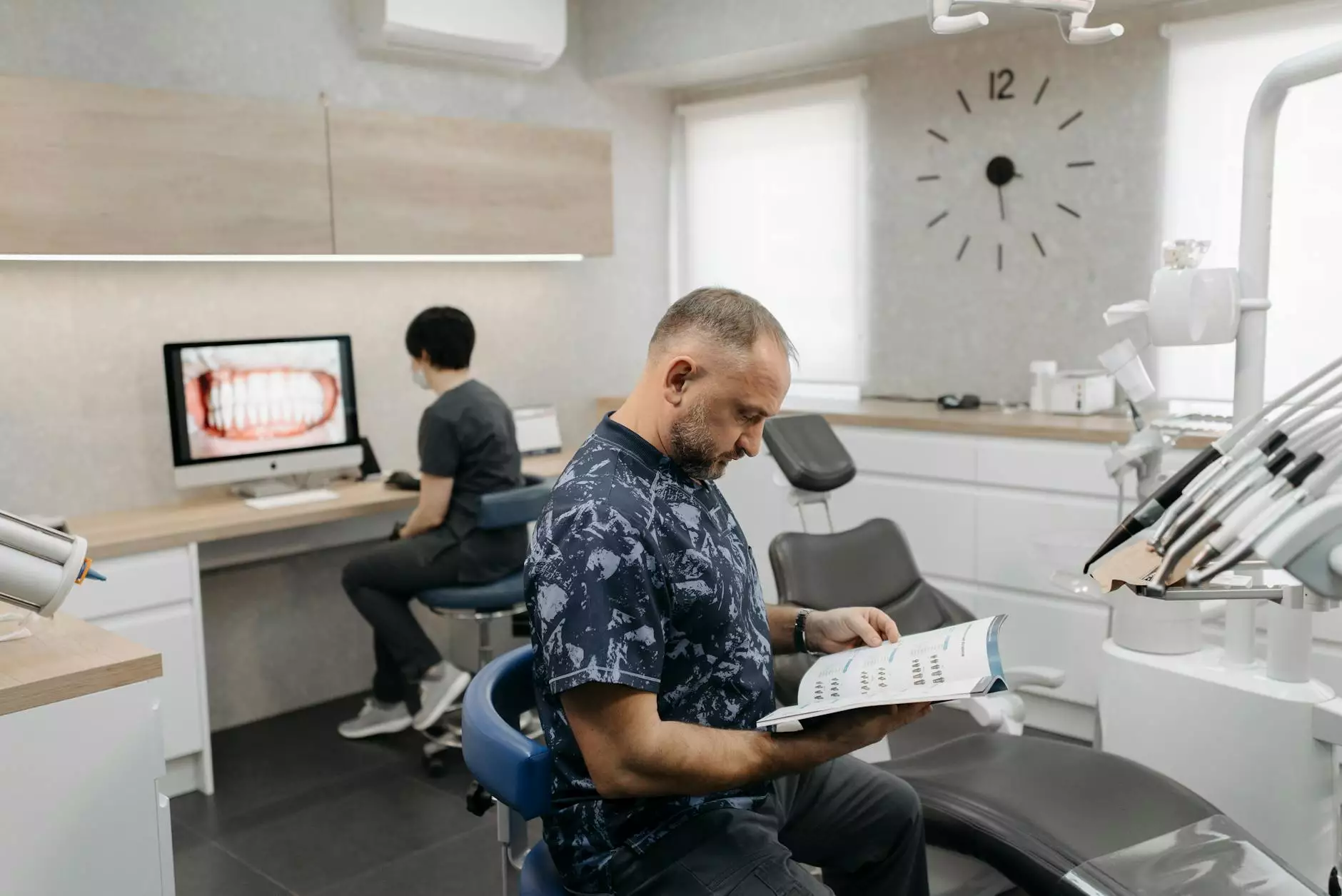Unleashing Your Dental Practice's Potential with Expert Website Design in the UK

In today's fast-paced digital landscape, a well-designed website serves as the backbone of any successful dental practice. It is not only a platform that showcases your services but also a key element in your overall marketing strategy. With an increasing number of patients searching for dental services online, focusing on dental website design in the UK is crucial for your practice's growth and success. In this comprehensive guide, we’ll delve into the essential features of effective dental websites and how they can help you {tdmc.co.uk} stand out in a competitive market.
Understanding the Importance of Dental Website Design
A professional and user-friendly website is essential for any dental practice looking to attract new patients and retain existing ones. Here are some of the core reasons why investing in quality dental website design in the UK is indispensable:
- First Impressions Matter: Your website is often the first point of contact for potential patients. A polished, attractive design can create a positive first impression and instill confidence in your services.
- Improved User Experience: An easy-to-navigate site ensures that visitors can find the information they need promptly, which can translate into more appointment bookings.
- Enhanced SEO Performance: A well-structured website with optimized content is more likely to rank higher in search engines, making it easier for potential patients to find you.
- Showcasing Services: A visually appealing website allows you to highlight your services effectively, perhaps through galleries, descriptions, or patient testimonials.
- Setting Yourself Apart: In a crowded marketplace, a unique and functional design can differentiate your practice from others.
Key Elements of Effective Dental Website Design
To ensure your website makes a lasting impact, it should integrate specific elements that cater to your target audience. Let's explore these essential components:
1. Responsive Design
With mobile devices accounting for a significant percentage of web traffic, having a responsive design is crucial. A responsive website adapts seamlessly to various screen sizes, ensuring an optimal viewing experience for users whether they are on a desktop or a smartphone.
2. Clear Navigation
Easy navigation is vital for a positive user experience. Your site should feature a clear and straightforward menu that allows visitors to find information quickly. Organizing your content into well-defined categories can greatly enhance usability.
3. Compelling Content
High-quality content is essential for engaging visitors and showcasing your expertise. Include informative blog posts, service descriptions, and patient resources. Utilize keyword-rich content while maintaining a natural flow to improve your SEO ranking for terms like dental website design UK.
4. Booking Functionality
Implementing an online booking system can significantly improve patient convenience and satisfaction. This feature allows patients to schedule appointments at their convenience, reducing the barriers to getting in touch with your practice.
5. Visual Appeal
The visual aspect of your website should align with your brand identity. Use high-quality images, consistent color schemes, and engaging graphics to create a cohesive look that resonates with your audience.
6. Patient Testimonials
Displaying testimonials from satisfied patients can build trust and credibility. Consider dedicating a section of your website to showcase reviews and experiences from your patients, which can influence new patients’ decisions.
7. SEO Optimization
Incorporating SEO best practices into your design will help your website rank higher on search engines. Ensure that each page includes relevant keywords, meta tags, and alt texts for images, particularly focusing on dental website design in the UK.
Creating an Effective Marketing Strategy with Your Website
Your website serves as the cornerstone of your marketing strategy. Here are some proven strategies to leverage your website effectively:
1. Content Marketing
Regularly updating your blog with relevant, informative content can establish your authority in the dental field. Consider writing articles that address common dental concerns, treatment options, and dental hygiene tips to attract and retain visitors.
2. Social Media Integration
Integrating social media with your website allows you to connect with your audience on multiple platforms. Share your content on social networks to drive traffic to your site and engage with your patients in a more personal manner.
3. Email Marketing
Email newsletters are an excellent way to keep patients informed about your practice. Use your website as a tool to collect email addresses and distribute newsletters containing useful information, special promotions, or patient success stories.
4. Online Reviews Management
Encourage patients to leave reviews online and respond promptly to their feedback. This improves your online reputation and can influence potential patients searching for dental services.
Common Mistakes to Avoid in Dental Website Design
Avoiding common pitfalls can save your dental practice time and frustration. Here are several mistakes to be aware of:
- Neglecting Mobile Users: Failing to optimize your site for mobile users can alienate a significant portion of your clientele.
- Overcomplicating Navigation: Complicated or cluttered menus can frustrate visitors. Keep navigation simple and intuitive.
- Ignoring SEO: Bypassing SEO can lead to poor visibility online. Ensure your content is optimized for the right keywords.
- Using Low-Quality Images: Subpar images can detract from your site’s professionalism. Always use high-resolution images that reflect the quality of your practice.
- Lack of Updates: A static website can signal inactivity. Regularly update your content to keep it fresh and relevant.
Choosing the Right Dental Website Design Agency
Finding a competent team to design or revamp your website is crucial. Here are steps to select the right dental website design agency:
1. Review Their Portfolio
Check the agency's previous work to assess their design style and capabilities. Look for examples of dental websites that resonate with your vision.
2. Check Client Testimonials
Research client feedback to understand the agency’s strengths and weaknesses. A reputable agency should have positive testimonials from satisfied clients.
3. Discuss Your Goals
When meeting with potential agencies, clearly outline your business goals and what you're looking to achieve with your website. This will help them tailor their services to your needs.
4. Evaluate Their Knowledge of SEO
Ensure that the agency understands SEO and can implement best practices within your website design to enhance visibility.
5. Consider Ongoing Support
A good agency will offer ongoing support and maintenance after the website launch. Discuss what their post-launch services entail.
Conclusion: Embracing Digital Innovation for Your Dental Practice
In conclusion, a well-crafted dental website design in the UK is not merely an accessory; it is an integral component of your marketing strategy. From enhancing patient engagement to improving SEO performance, the right website design can transform the way potential patients perceive your practice. By focusing on user-friendly elements, quality content, and a solid marketing approach, you can position your dental practice for successful growth and lasting impact in the community.
For expert assistance in navigating the digital landscape for dental practices, visit tdmc.co.uk for tailored solutions that cater to your specific needs. Investing in your website's design is investing in your practice's future.








